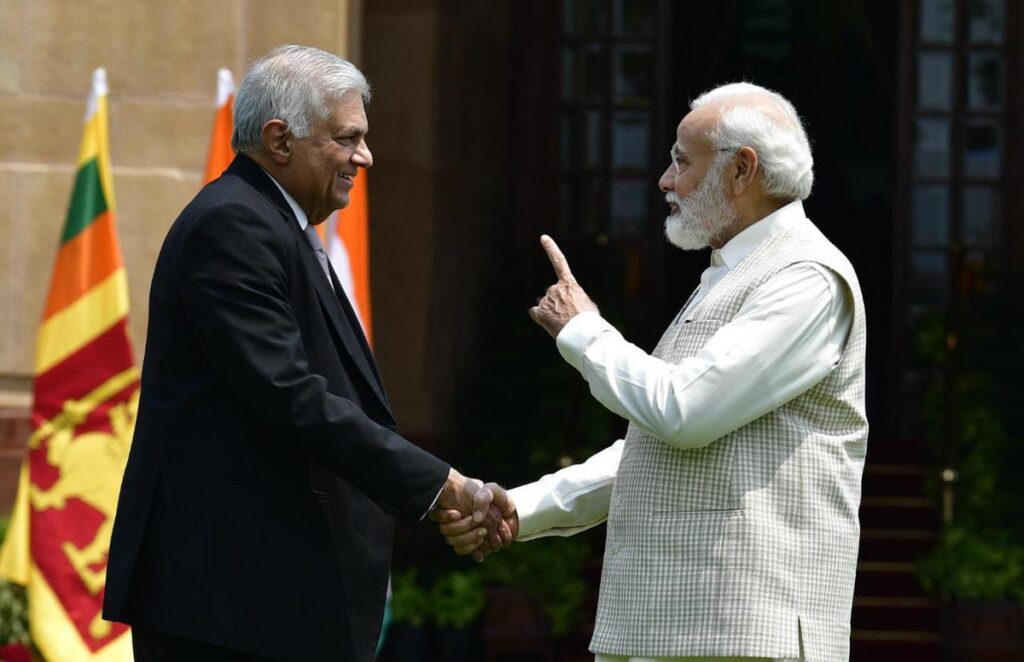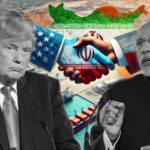India’s strategic ties with Sri Lanka are set to face new challenges after the recent defeat of pro-India President Ranil Wickremesinghe. Anura Dissanayake, leader of the Janatha Vimukthi Peramuna (JVP), has won Sri Lanka’s 2024 Presidential election, a significant shift that could bring a resurgence of Chinese influence in the island nation.
This development is crucial as India had cultivated a strong relationship with Wickremesinghe, who came to power in 2022 following the collapse of Gotabaya Rajapaksa’s government during Sri Lanka’s worst economic crisis in recent history. India played a critical role in Sri Lanka’s recovery, providing a $4 billion bailout package and supporting its efforts to secure additional funding from the International Monetary Fund (IMF). Indian investments in Sri Lanka, including a petroleum pipeline, infrastructure deals, and the proposed land bridge, solidified the bilateral relationship.
Wickremesinghe’s administration limited Chinese influence, a source of concern for India, particularly after the Hambantota Port deal in which a Chinese company gained control of a strategic port. Wickremesinghe’s government also banned Chinese research vessels from docking in Sri Lanka until 2025, a significant gesture towards assuaging Indian security concerns.
However, despite these efforts, Wickremesinghe’s economic reforms, though stabilizing the country, were deeply unpopular with the Sri Lankan public. The election of Dissanayake reflects a broader desire for change in Sri Lanka, as his JVP party, which has a history of Marxist uprisings, promised clean governance and an end to corruption.
Dissanayake’s JVP has historically been suspicious of India, with a rocky relationship dating back to the 1980s when the JVP accused New Delhi of meddling in Sri Lanka’s civil war. The party has long warned of “Indian Expansionism,” and although it has softened its tone in recent years, there remains deep-rooted skepticism about Indian influence.
While Dissanayake has made overtures to India, meeting with India’s Foreign Minister S. Jaishankar in 2024 and assuring that India would remain an important partner for Sri Lanka, there are growing concerns about his government’s policies. His party has already signalled to cancel energy projects awarded to India’s Adani Enterprises. This starkly contrasts with the Wickremesinghe government, which handed several strategic development projects to Indian firms, taking them away from Chinese competitors.
Adding to India’s concerns is the JVP’s close relationship with China. Dissanayake led a delegation to China before he visited India, reinforcing fears that Sri Lanka may once again tilt toward Beijing. While the JVP has been critical of Chinese investments like the Hambantota Port, the party’s historical ties with China’s Communist Party may pave the way for Beijing to reassert itself in Sri Lanka’s strategic landscape.
The new administration’s stance on China and India will be closely watched. While Dissanayake’s government seeks to balance relationships with both regional powers, the uncertainty surrounding its approach to security and economic cooperation may strain India’s efforts to maintain its influence in Sri Lanka. The election result signals that India’s diplomatic and strategic calculus in South Asia is entering a more complex phase, especially with the possibility of a Chinese comeback in Sri Lanka looming large.




